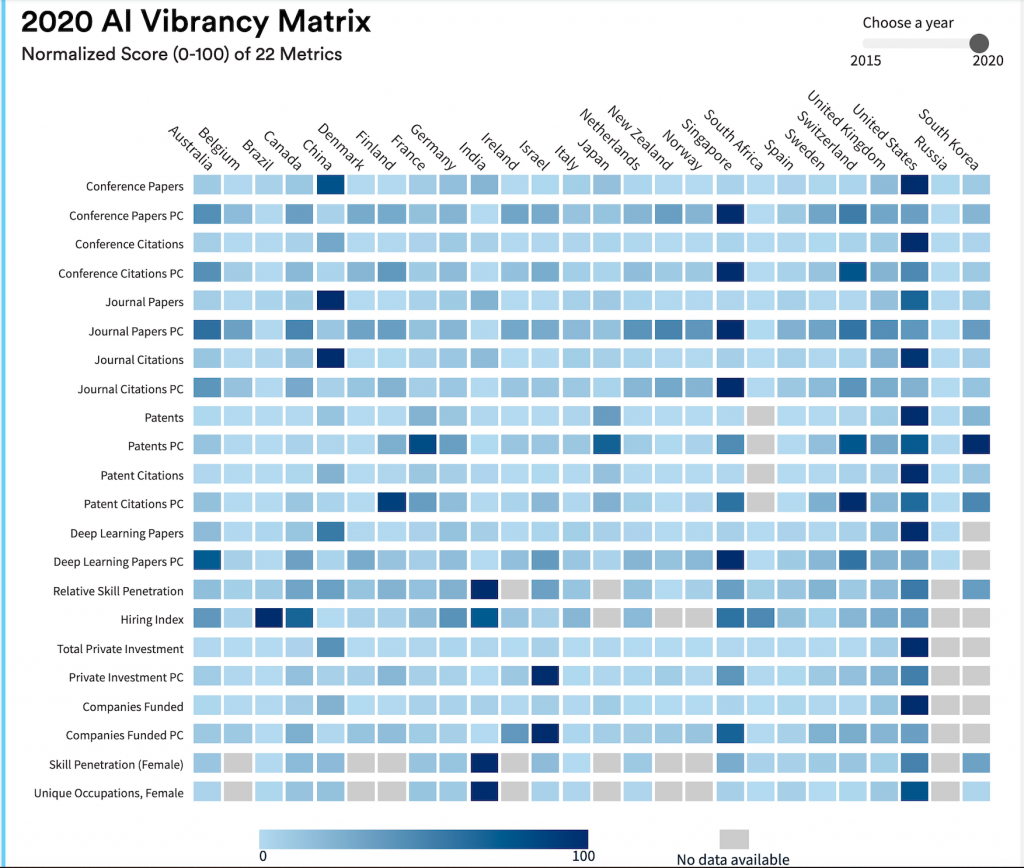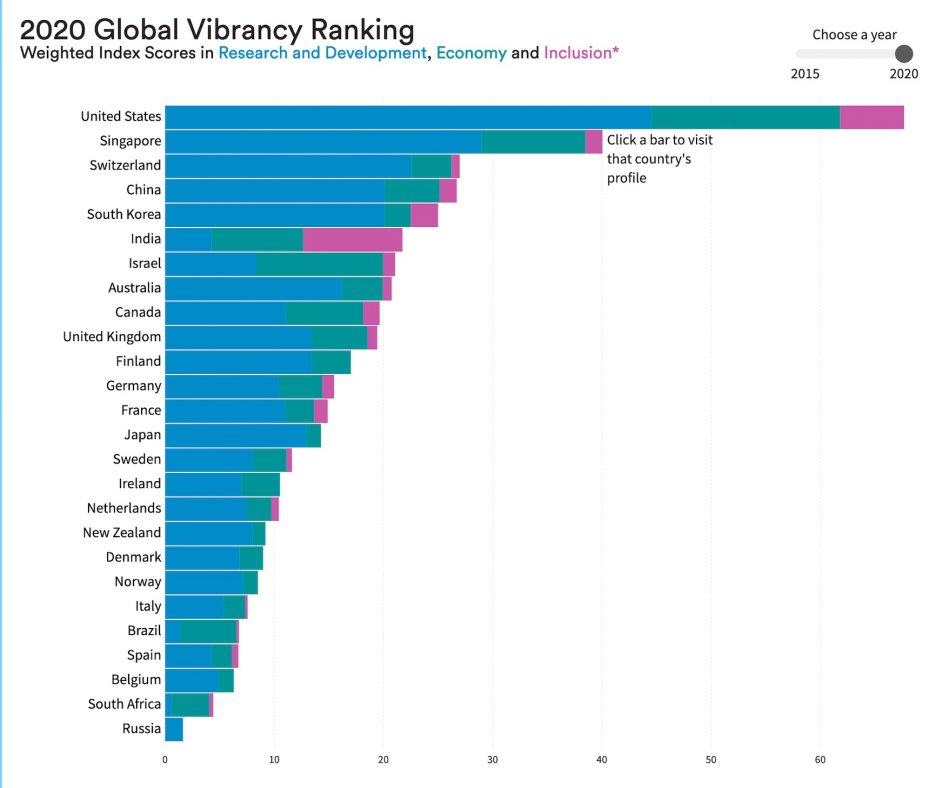
Methodology
Step 1: Obtain, harmonize, and integrate data on individual attributes across countries and time.
Step 2: Use Min-Max Scalar to normalize each country-year specific indicator between 0-100.
Step 3: Take arithmetic Mean per country-indicator for a given year.
Step 4: Build modular weighted Mean for available pillars and individual indicators.
Aggregate Measure
The AI Vibrancy Composite Index can be expressed in the following equation:
AI Vibrancyc,t = ( Ψpillar × [Ωc,t × Ψindicator ]) ÷ N
where c represents a country and t represents year, Ωc,t is the scaled (0-100) individual indicator, Ψindicator is the weight assigned to individual indicators, Ψpillar is the weight specific to one of the three high-level pillars and N is the number of indicators available for a given country for a specific year.
Normalization
To adjust for differences in units of measurement and ranges of variation, all 22 variables were normalized into the [0, 100] range, with higher scores representing better outcomes. A minimum-maximum normalization method was adopted, given the minimum and maximum values of each variable respectively. Higher values indicate better outcomes. The normalization formula is:
Min—max scalar (MS100) = 100 × (((value) − (min)) ÷ ((max) − (min)))
Coverages and Nuances
A threshold of 73% coverage was chosen to select the final list of countries based on an average of available data between 2015-2020. Russia and South Korea were added manually due to their growing importance in the global AI landscape, even though they did not pass the 73% threshold.
Metric Definitions
- Research and Development
- Economy
- Inclusion*

Great selection of modern and classic books waiting to be discovered. All free and available in most ereader formats. download free books https://www.philadelphia.edu.jo/library/directors-message-library
Great selection of modern and classic books waiting to be discovered. All free and available in most ereader formats. download free books https://www.philadelphia.edu.jo/library/directors-message-library
whoah this blog is wonderful i really like reading your articles. Keep up the great paintings! You realize, a lot of people are hunting round for this info, you could help them greatly.
whoah this blog is wonderful i really like reading your articles. Keep up the great paintings! You realize, a lot of people are hunting round for this info, you could help them greatly.
I have read so many posts about the blogger lovers however this post is really a good piece of writing, keep it up
https://www.philadelphia.edu.jo/library/directors-message-library
Great selection of modern and classic books waiting to be discovered. All free and available in most ereader formats. download free books
I have read so many posts about the blogger lovers however this post is really a good piece of writing, keep it up
Great selection of modern and classic books waiting to be discovered. All free and available in most ereader formats. download free books
https://www.philadelphia.edu.jo/library/directors-message-library
When your website or blog goes live for the first time, it is exciting. That is until you realize no one but you and your.
I’m happy I located this blog! From time to time, students want to cognitive the keys of productive literary essays composing. Your first-class knowledge about this good post can become a proper basis for such people. nice one
This is a great inspiring article.I am pretty much pleased with your good work.You put really very helpful information…
Nice blog. Found this while searching through
I have read your excellent post. This is a great job. I have enjoyed reading your post first time. I want to say thanks for this post. Thank you…